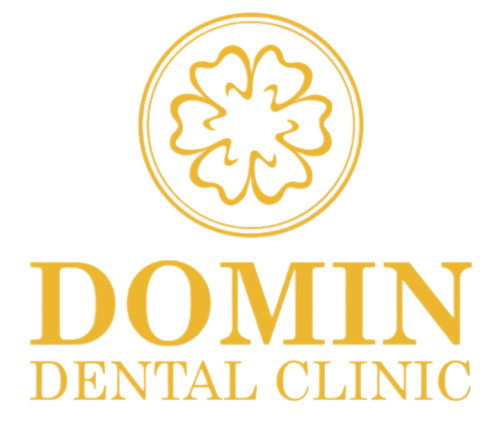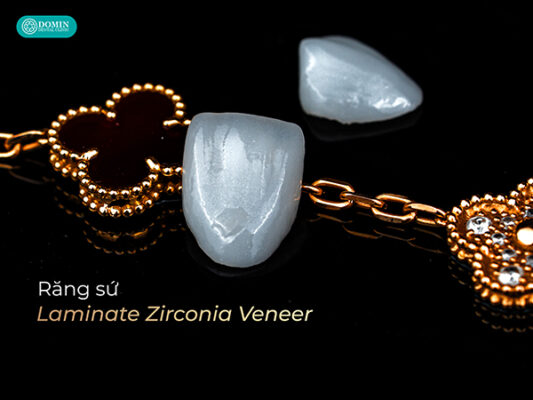Should you get porcelain veneers?
The answer is yes — but with proper understanding. Veneers are not a one-size-fits-all solution. Without recognizing their clinical indications and limitations, veneers can become a “double-edged sword”, doing more harm than good.
When Should You Choose Veneers?
Porcelain veneers are considered a significant advancement in modern aesthetic dentistry, offering minimal intervention with maximum results.
With their advantages of preserving natural tooth structure and recreating lifelike color and form, veneers provide an opportunity for many patients to achieve a beautiful, harmonious smile without having to “sacrifice” excessive tooth enamel.

Indications for Porcelain Veneers
- Tooth Discoloration:
Especially suitable for teeth that are severely stained or yellowed, where professional whitening does not achieve the desired results. - Chipped, Worn, or Slightly Cracked Teeth:
Veneers help restore the tooth surface, improving both function and esthetics without the need for extensive tooth reduction. - Small Gaps or Uneven Tooth Shape:
For cases with minor spacing, short, or undersized teeth, veneers can reshape and harmonize the smile in proportion to the dental arch. - Mild Tooth Misalignment:
Ideal for patients with slightly rotated, tilted, or mildly crowded teeth who wish to avoid long-term orthodontic treatment. Veneers can mask imperfections, creating the appearance of a straight, well-aligned smile. - High Esthetic Demands:
Recommended for individuals who frequently appear in public or value a refined, natural-looking smile — such as professionals, presenters, or artists.
Summary
In short, porcelain veneers are an optimal solution for patients with minor esthetic flaws, healthy tooth structure, and a desire to achieve both beauty and tooth preservation.
They offer a perfect balance between aesthetics, function, and conservation of natural enamel.
When Should You Avoid Getting Veneers?

Although veneers offer numerous advantages, they are not suitable for every dental condition. From a clinical perspective, dentists typically do not recommend veneer placement in the following situations:
- Severe Malocclusion or Misalignment
Cases involving severe protrusion, crowding, or crooked teeth are not ideal for veneers. In such situations, veneers cannot adequately mask or correct tooth position and may even worsen the bite alignment.
👉 Recommended alternatives: orthodontic treatment or full-coverage crowns.
- Weakened Enamel or Significant Tooth Structure Loss
When the tooth enamel is compromised or too much natural structure has been lost, veneers will not have a stable surface to bond to, increasing the risk of debonding or fracture during chewing.
- Severe Tooth Discoloration
In cases of deep intrinsic staining, such as tetracycline or severe fluorosis, the translucency of veneers may not sufficiently mask the underlying discoloration. The base color of the tooth can affect the final esthetic outcome.
- Untreated Dental Diseases
Conditions such as tooth decay, pulpitis, gingivitis, or periodontitis must be fully treated before veneers are placed. Applying veneers over diseased teeth can lead to serious complications and treatment failure.
- Harmful Oral Habits
Patients with habits such as bruxism (teeth grinding), biting hard objects, or uncontrolled dietary behaviors may cause cracks or fractures in veneers, even when made from high-strength ceramics.
Conclusion
Porcelain veneers deliver the best results only when properly indicated and performed on healthy teeth.
They are an ideal solution for mild esthetic imperfections in patients with stable occlusion and a strong desire to preserve natural tooth structure.
Conversely, for cases involving severe misalignment, weak enamel, or untreated oral disease, veneers are not a safe or effective option.
The final treatment decision should always be based on a comprehensive clinical examination, X-ray evaluation, and professional assessment by a cosmetic or restorative dentist — ensuring long-term aesthetic, functional, and biological success.
Comparison: Porcelain Veneers vs. Dental Crowns
To help you better understand and decide whether porcelain veneers are the right choice for you, the table below provides a quick comparison between veneers and dental crowns — the two most common aesthetic restorative treatments today.
This comparison serves as a clear reference for choosing the most suitable solution based on your current dental condition.
| Criteria | Porcelain Veneer | Porcelain Crown |
|---|---|---|
| Tooth Preparation | Minimal tooth reduction (0.3–0.7 mm, mostly on the front surface) → maximum preservation of natural tooth structure | Requires more tooth reduction (1–2 mm around the entire tooth) to accommodate the crown |
| Durability | 10–15 years (with proper care) | 15–20 years, higher strength and better resistance to heavy chewing forces |
| Aesthetics | Very high, with superior translucency and lifelike natural color | Good, but slightly less translucent compared to veneers |
| Biting Force Resistance | Lower — best suited for anterior (front) teeth and cosmetic cases | Higher — suitable for posterior teeth that require strong biting and chewing |
| Tooth Preservation | Minimally invasive, preserves enamel and dentin | More invasive, involves greater removal of tooth structure |
| Indicated Cases | Teeth with mild discoloration, small gaps, minor chipping, or patients seeking cosmetic enhancement with healthy teeth | Teeth that are severely decayed, broken, or structurally compromised, requiring full restoration |
| Ability to Reshape Tooth Form | Limited – primarily modifies the front surface and minor contours | Comprehensive – allows full modification of tooth shape, occlusion, and height |
Should You Get Porcelain Veneers?
When facing dental imperfections, seeking the right solution is a natural choice.
So, should you get porcelain veneers? The answer is yes, but it must be based on your specific oral condition.

Should You Get Porcelain Veneers? A Professional Perspective
If your teeth have only minor aesthetic imperfections—such as mild discoloration, small chips, slight gaps, or uneven shape—and you wish to enhance your smile while preserving as much natural tooth structure as possible, then veneers are the ideal choice.
Conversely, for cases involving significant malocclusion, weak enamel, extensive tooth damage, or existing oral diseases, veneers may not provide the desired results. In such situations, your dentist may recommend orthodontic treatment to correct the bite or full-coverage crowns to restore function and protect the remaining tooth structure.
According to Domin Dental Clinic’s cosmetic specialists, porcelain veneers are indeed an outstanding aesthetic solution, but they are not a “one-size-fits-all” treatment.
Veneers are most effective when the teeth are healthy, the bite is stable, and the required corrections are primarily cosmetic. On the other hand, in cases of severe misalignment, weak enamel, or oral disease, veneers are neither the safest nor the most sustainable option.
Therefore, the question of whether you should get veneers has only one correct answer: Yes—but only after a thorough clinical evaluation.
Your dentist will assess your occlusion, enamel condition, gum health, and aesthetic goals to determine the most suitable treatment plan.
Do not make decisions based solely on personal preference—let a qualified professional guide you toward a smile that is not only beautiful but also healthy and long-lasting.
📞 For detailed consultation, please contact our hotline 0889 988 115.
Just one short appointment with our dental experts can make a remarkable difference — giving you a brighter, more confident, and naturally radiant smile that lasts for years to come.



 Tiếng Việt
Tiếng Việt
























